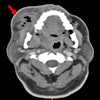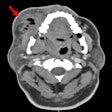Tooth-binding particles may provide long-term protection against dental caries by adhering to tooth surfaces and gradually releasing encapsulated antimicrobials, according to a new study in Antimicrobial Agents and Chemotherapy (November 2009, Vol. 53:11, pp. 4898-4902).
Researchers from the University of Nebraska Medical Center, Omaha and the University of Florida, Gainesville developed tooth-binding micelles and encapsulated them with farnesol, an antimicrobial recently found to be effective against the cavity causing bacterium Streptococcus mutans UA159. When tested on a model tooth surface, the particles were able to swiftly bind to the tooth and gradually release the farnesol. Biofilm inhibition studies of the farnesol-containing tooth-binding micelles demonstrated that they were able to inhibit S. mutans UA159 at much higher levels than untreated blank control micelles, noted the authors.
Upon further optimization, a delivery platform based on this approach could provide an effective tool for caries prevention and treatment, the authors wrote.
"It is anticipated that the tooth-binding micelles have the potential to be formulated into mouth rinses that may have the merits of simple application, cultural acceptance, and improved patient compliance," they said in a press release.















